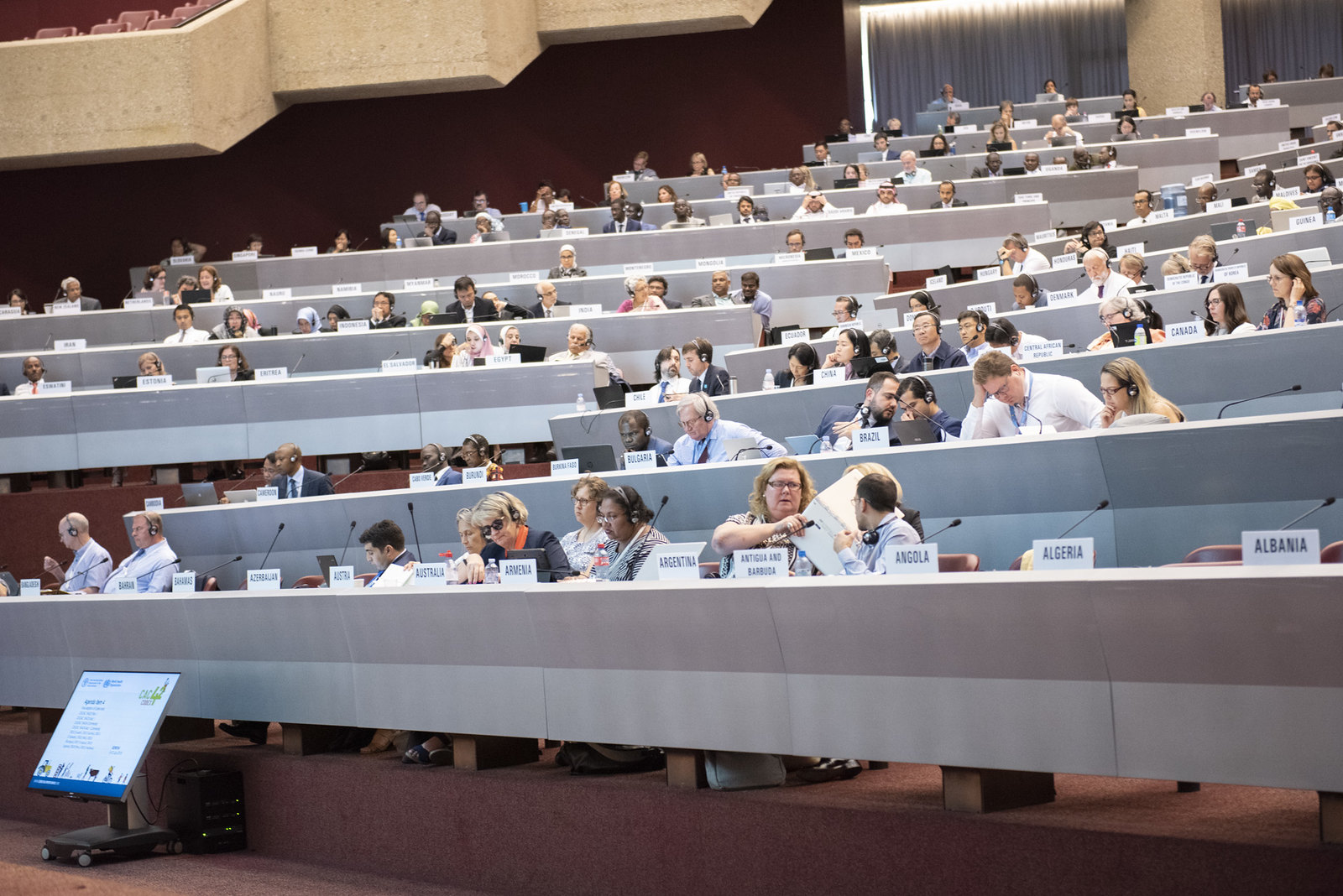Codex leading the way in methods of analysis and sampling
The Codex Committee on Methods of Analysis and Sampling (CCMAS) is updating its keystone text to create a one-stop shop for methods of analysis that will ensure easy access for those using Codex standards.
The General Standard on Methods of Analysis and Sampling, CX234, supports many of the other standards in Codex by providing the methods necessary to ensure compliance with Codex texts. The adoption of a new general structure for this fundamental standard at CAC42 in July 2019 heralds a new approach to Codex work in this area to make CX234 the single reference for Codex methods.
Methods verify provisions in standards
Take as an example milkfat in butter. Aurélie Dubois-Lozier, Science and Standards Programme Manager at the International Dairy Federation (IDF), a Codex Observer explains: “A provision in the Codex Standard for Butter (CXS 279) specifies that butter must have a minimum milkfat content of 80% m/m”. Codex Standard 234 recommends two methods to verify this requirement, one from ISO and another from IDF. “Methods categorized like these as type I or type II are reference methods that are intended to be those used in case of a trade dispute”, she said.
A reference for food business operators.
Brazil and Uruguay conducted the revision of CXS 234 in order to harmonize information available on this standard and to guarantee a single source of reference of methods to assess compliance for provisions described in Codex commodity standards.
Ligia Schreiner, Health Regulation Specialist in the Brazilian Health Regulatory Agency ANVISA said, “This work is important for our country because CXS 234 is a reference for many food business operators and analysts”. The information that identifies a particular performance or method must be reported “in an organized, comparable and consistent manner," he said.
Laura Flores, Senior Consultant for Quality Coordination from The Technological Laboratory of Uruguay (LATU), said the work on CX 234 was needed “to reflect current CCMAS policy to encourage Codex Committees to develop method performance criteria”. The update will allow for “permanent and dynamic revision easily accessible to Codex Members, Observers and other concerned parties”, she said.

CAC42 adopted the new structure of CX234
Scott Bloomer, Director, Technical Services, in the American Oil Chemists’ Society (AOCS), Codex Observer, explained why the work was necessary. “There are 15 commodity categories in CXS234, and even though some methods in these categories may have been updated on an ad hoc basis, they have not been reviewed as a category for about 20 years”.
AOCS undertook the task of reviewing the fats and oils category of CXS234. This included seven commodities and about 96 methods. With the help of over a dozen volunteer scientists around the globe, each method was reviewed to ensure it was fit for purpose, accurately listed, that equivalent methods were truly equivalent and that methods were typed correctly.
Remaining relevant
As hard as it may be to grasp to those who work in Standards on a regular basis, Codex Alimentarius is largely invisible to the majority of people it serves. “Effort is needed to remain relevant as society changes”, said Bloomer. The work of reviewing CXS234 ensures that each standard, and the method to test for that standard is truly accurate and will properly test for the commodity and provision in which it was assigned. “Through this work we can know, for example, that the olive oil being tested for peroxide value by the producer in Italy is tested using the same method by the bottler in Canada”, he said.
World class experts.
CCMAS is a clear example in the Codex system of the essential work and expertise Observers contribute. Standard Development Organizations (SDOs) such as AOCS have access to highly qualified people including world-class experts on analytical chemistry and specialists in the different focus areas such as the analysis of fats and oils.

Reference methods are used in case of a trade dispute
Dubois-Lozier said, “IDF has made it a priority to contribute to the review of the Codex STAN 234 through its expertise in dairy, methods of analysis and standardization in order to ensure accuracy and applicability of the methods listed and thereby ensuring a reliable tool complementary to the Codex standards for dairy products.”
Attila Nagy, Director of the Food Chain Safety Laboratory Directorate in the Hungarian National Food Chain Safety Office, Chair of CCMAS said, “the revision of CXS234 has become the most important work of the committee”. A database is planned and the “revision was very helpful providing a new structure and simplification of commodities, provision and other data”, he said, where “governments and laboratories will be able to find the most updated and fit methods for their analytical tasks”.
A one-stop shop

Codex recommended methods of analysis are particularly important for checking compliance with provisions in Codex standards. “It is important to keep them updated, relevant and easily accessible - this is what we intend to achieve with our one-stop shop on methods”, said Verna Carolissen, Food Standards Officer in the Codex Secretariat. “This could only have been possible with the support and commitment of Members and SDOs and with our new guidance to support this work, consensus should become easier”, she said.
The progress to date showcases the value of working together and demonstrates how real engagement from Member countries can lead to innovative approaches to Codex work, such as the development of work packages which facilitate the update of methods relevant to groups of commodities.
The Codex Secretariat is facilitating this process of innovation which supports both the standard revision work and the future uptake of the standards by governments and other relevant stakeholders. “There is still much work to do”, said Carolissen, as the work of the committee leads the way in terms of ensuring “Codex standards are meeting our needs today and in the future”.
Read more
Photo Credits
Main photo Philippines, August 1961 – SCPP laboratory technicians; UN photo, issued by FAO / FAO
Other photos
© FAO/Bob Scott
Categories
- (11)
- (3)
- Animal Feed (8)
- Antimicrobial Resistance (39)
- Antimicrobial Resistance (78)
- CAC46 (15)
- Codex Texts (20)
- Codex Trust Fund (1)
- Codex60 (19)
- Contaminants (13)
- Contaminants (10)
- COVID-19 (64)
- Elections (6)
- Food Safety (126)
- Labelling (10)
- Nutrition and Labelling (5)
- Nutrition and Labelling (7)
- Observers (23)
- Pesticides (7)
- Standards (78)
- World Food Safety Day (154)


